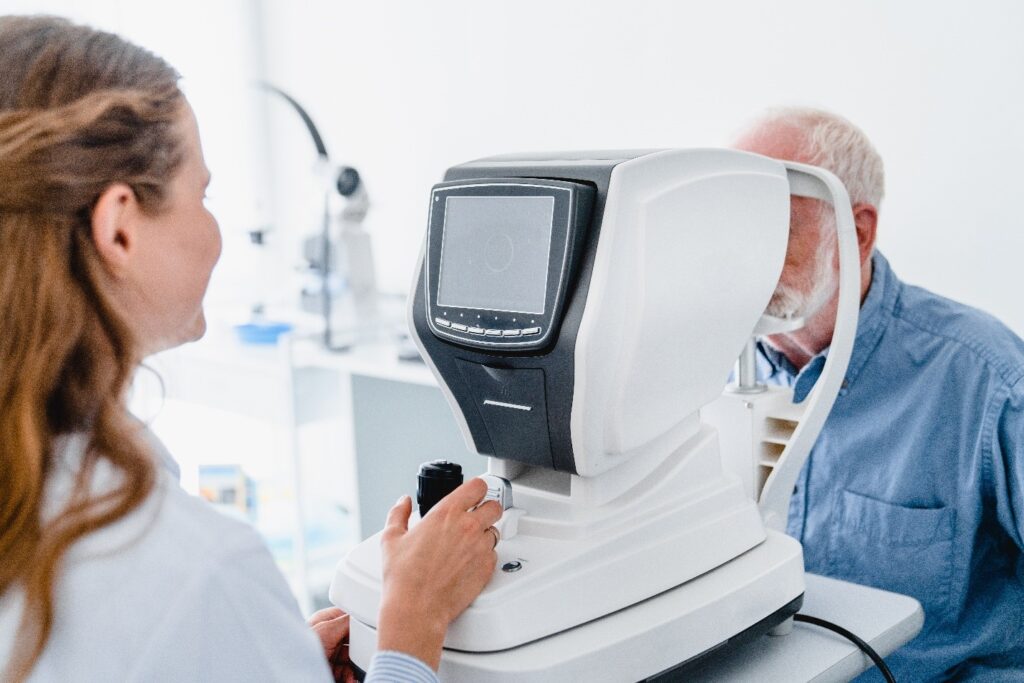Biocon Biologics’ Yesafili (aflibercept-jbvf) and Biogen and Samsung Bioepis’ jointly developed Opuviz (aflibercept-yszy) have been given the green light by the US Food and Drug Administration (FDA) as the first interchangeable biosimilars to blockbuster eye drug Eylea.
Yesafili and Opuviz are approved to treat the same conditions as Regeneron’s vascular endothelial growth factor (VEGF) inhibitor Eylea — neovascular (wet) age-related macular degeneration (AMD), diabetic retinopathy, macular edema following retinal vein occlusion (RVO) and diabetic macular edema (DME).
As interchangeable biosimilars, the intravitreally (in the eye) administered solutions can be subbed for the reference product Eylea at a pharmacy counter without needing a prescription.
In a news release, Biocon said data showed that Yesafili has comparable quality, safety and efficacy to Eylea.
According to Biocon, there are 19.8 million people in the US with AMD.
Untreated AMD is the leading cause of irreversible blindness or vision loss in individuals 60 years of age or older. While neovascular or wet AMD accounts for ten percent of AMD cases, 90 percent of blindness results from the condition.
XTALKS WEBINAR: Revolutionizing Ophthalmology Clinical Trials Through Enhanced Accessibility and Advanced AI-driven Analysis
Live and On-Demand: Thursday, July 11, 2024, at 11am EDT (4pm BST/UK)
Register for this free webinar to explore strategies focused toward improving patient access and precision analysis by integrating artificial intelligence in ophthalmology clinical trials.
Outside the US, Eylea is partnered with Bayer with equal profit sharing between Regeneron and Bayer.
Yesafili’s approval was based on analytical, nonclinical and clinical data, which provided confirmation that the drug is highly similar to Eylea. This included results from the Phase III INSIGHT study that demonstrated there were no clinically meaningful differences between Yesafili and Eylea with respect to pharmacokinetics, safety, efficacy and immunogenicity.
First approved in 2011, Eylea’s market value was estimated to be $8.79 billion in 2023 and is anticipated to reach $14.30 billion by 2030, at a compound annual growth rate (CAGR) of 7.2 percent during the forecast period 2023 to 2030.
As one of Regeneron’s best-selling drugs, US sales of Eylea were approximately $5.89 billion in 2023. The drug is set to lose patent exclusivity this year, so Regeneron is bracing itself for biosimilar competition.
The company has been stalling biosimilar competitors through lawsuits. In December 2023, it won a case against Viatris that will prevent its biosimilar from being launched in the US until 2027. Regeneron also has a legal case against Samsung Bioepsis.
Related: Regeneron’s High Dose Eylea Gets FDA Nod for Wet AMD and DME
With biosimilar erosion on the horizon, Eylea’s strong market run has already begun to be halted courtesy of Roche’s longer-acting formula Vabysmo (faricimab-svoa) that only has to be injected three times a year into the eye instead of Eylea’s six. In addition to VEGF, Vabysmo also targets Ang-2, which are both implicated in retinal conditions that can lead to vision loss.
First approved in 2022 and winning a subsequent approval in 2023 for macular edema following RVO, Vabysmo exceeded sales expectations earning about $2.7 billion in 2023.
In 2022, global Eylea sales hit $9.6 billion but dipped to $9.4 billion in 2023.
Eylea and Vabysmo retail for $2,625 and $2,316, respectively, per dose. Biocon and Biogen haven’t shared what their interchangeable biosimilars will cost, nor when they will be launched in the US market. Under a settlement agreement, Biocon said Yesafili will be available in Canada no later than July 1, 2025.
In the US, Biogen will market Yesafili. In September 2023, Yesafili was granted marketing authorization by the European Medicines Agency (EMA), making it the first aflibercept biosimilar approved in the European Union (EU). It was also approved in the UK in November 2023.
Other wet AMD drugs in the market include Genentech’s VEGF inhibitors Lucentis (ranibizumab) and Avastin (bevacizumab), as well as Novartis’ Beovu (brolucizumab).
If you want your company to be featured on Xtalks.com, please email [email protected].












Join or login to leave a comment
JOIN LOGIN